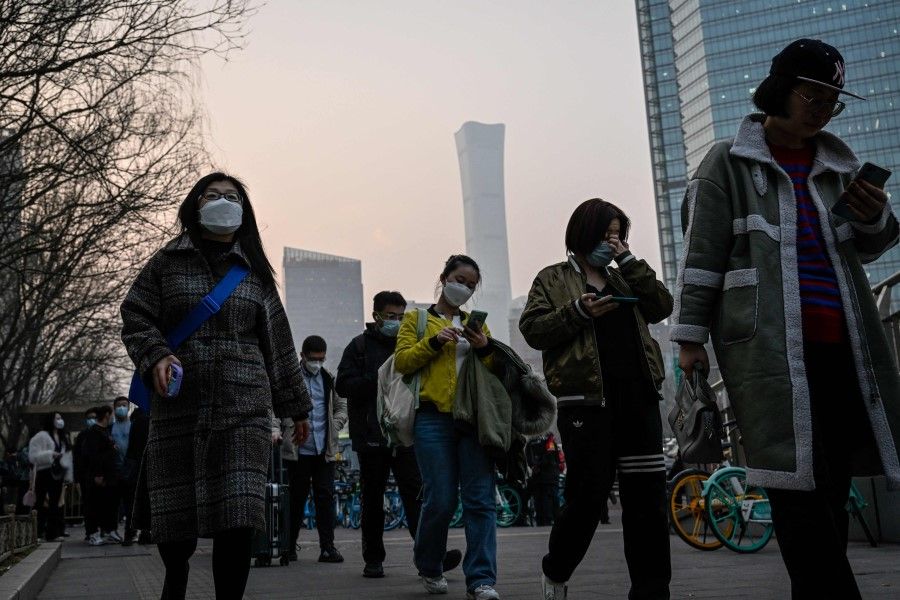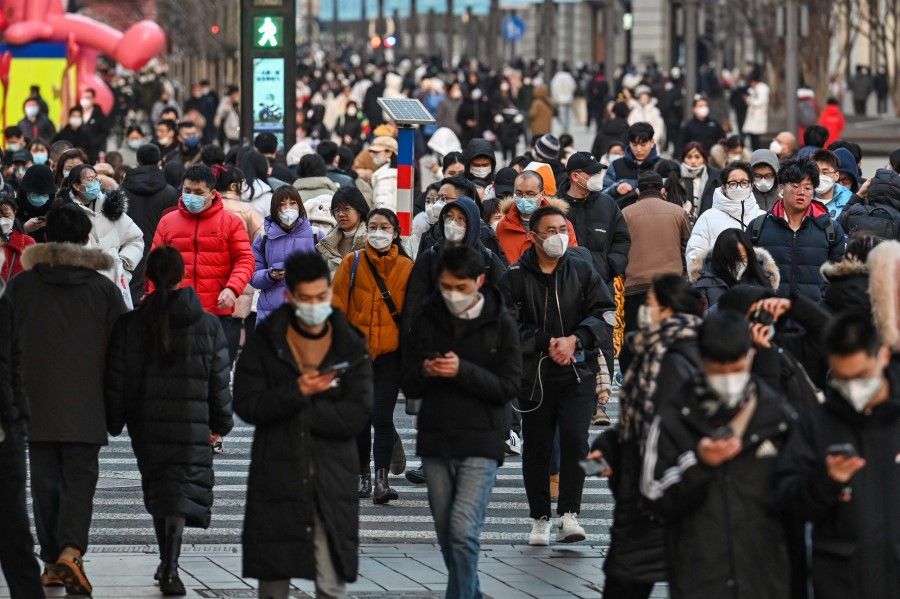Can China's economic choices build its dream society?

The Chinese government's work report for 2023 sets growing domestic demand as the focus of its work in the next phase, and prioritises the recovery and growth of consumption. Whether in terms of short-term economic recovery or long-term strategy, this is a much-needed approach.
However, there are various views on how to increase domestic demand and boost consumption, which boils down to the kind of market economy that China wants to build.
... foreign investors' willingness to stay in China largely depends on whether its domestic market can continue to grow.
Consumption lagging behind economic growth
Strict zero-Covid policies during the pandemic led to a drop in spending. Total retail sales of consumer goods in 2022 fell by 0.2% year-on-year, leading to a severe slowdown in GDP growth. Boosting consumption has become critical for economic recovery.
The report also highlighted the need to more aggressively attract and use foreign investments, which is inherently linked to growing consumption. Since 2016, the domestic sales of foreign-funded enterprises in China has surpassed its exports. In the context of intensifying China-US rivalry, foreign investors' willingness to stay in China largely depends on whether its domestic market can continue to grow.

Taking a longer term view, the Chinese government has proposed a dual circulation strategy with domestic and international circulation complementing each other, and domestic circulation as the mainstay. Increasing domestic demand and building a high-quality consumer market is the key to ensuring that this strategy is effective.
Notably, recovery and growth of consumption cannot solely rely on post-pandemic stimulus policies, but it has to be resolved as a structural issue in China's economy.
China has maintained its consumption at around 60% of GDP, which is not only far lower than developed countries such as the US and Japan, but is some way from developing countries such as India and Vietnam, which all have consumption of at least 70% of GDP. Why has consumption as a share of the economy not increased in line with 40 years of rapid economic growth?
China's economic pie is still not big enough to give full play to the vibrancy that it has.
Allowing a degree of income inequality
There have always been two views on this, which would influence the two approaches to increasing consumption.
The first view is that China's economic pie is still not big enough to give full play to the vibrancy that it has. Those who hold this view generally attribute the lack of consumption to the government having too deep a hand in the economy and holding too many resources, with a disproportionately high amount of investments by state-owned enterprises (SOEs). All this seriously hinders the growth of the private sector economy, as well as the distribution of the fruits of economic growth to the workforce.
Those who agree with this view generally feel that to increase domestic demand and boost consumption, further reforms are needed for SOEs, while the private sector economy and the entrepreneurial spirit should be encouraged. To this end, a modest gap between the rich and poor should be tolerated.
... insufficient consumption is caused by the problematic distribution of the economic pie.

The other view is that insufficient consumption is caused by the problematic distribution of the economic pie. The unequal distribution of income and assets in Chinese society has severely affected the spending power of low-income households.
In terms of income distribution, a Beijing Normal University study found that 547 million people in China have a monthly income of less than 1,000 RMB (US$145) in 2019, while as many as 964 million people, or nearly 70% of the total population, have a monthly income of less than 2,000 RMB.
The problem with China's asset distribution is even more prominent. A latest Thomas Piketty study found that in 2021, the richest 0.001% of China's population owns about 10% of the country's assets, while the bottom 50% owns only 6%.
Redistributing wealth
Proponents of the second view not only support the government's plan to redistribute wealth through taxation and other means, but also firmly support anti-monopoly regulations. This is because the monopolistic behaviours of large enterprises, especially platform enterprises, will not only hinder the development of small- and medium-sized enterprises (SMEs) but also result in the informalisation of employment patterns, where the workforce in the informal sector increases indiscriminately. At the same time, the vast majority of SME owners and their employees form a major part of the middle class.
In 2021, China introduced the concept of "common prosperity" and moved to prevent the disorderly expansion of capital, cracking down on the internet, real estate, and private education sectors. These measures are in line with the second view that believes that the problem with China's economy lies in the unequal distribution of wealth.

But things didn't go as planned; stringent regulations on top of harsh anti-Covid measures severely affected the private sector and dealt a big blow to the confidence of entrepreneurs. Hence, since late 2022, the Chinese government made relevant policy adjustments and began to tilt towards the first view.
I do not intend to make a value judgement on how China should go about expanding domestic demand and boosting consumption in the next phase. I only wish to point out that, between efficiency and equity, there are multiple options to choose from, and the choice essentially reflects the ultimate vision of a market economy that a country wants to pursue.
So, China needs to ask herself: in the future, does she hope to build a vibrant and dynamic society with high social mobility and a high tolerance for income inequality; or does she want to create a more egalitarian society mainly comprising the middle class and where each citizen can fully enjoy the fruits of economic growth?
Related: China cutting financial regulators' pay in push for common prosperity | Can China rally private enterprises and boost domestic demand? | China local governments' fiscal stress may roll over to 2023, think tank warns | Shanghai's new leader Chen Jining's all-out effort to boost economy: Will it work? | Uneven recovery ahead for China's economy | How Chinese private firms can be made more confident of the government's support
